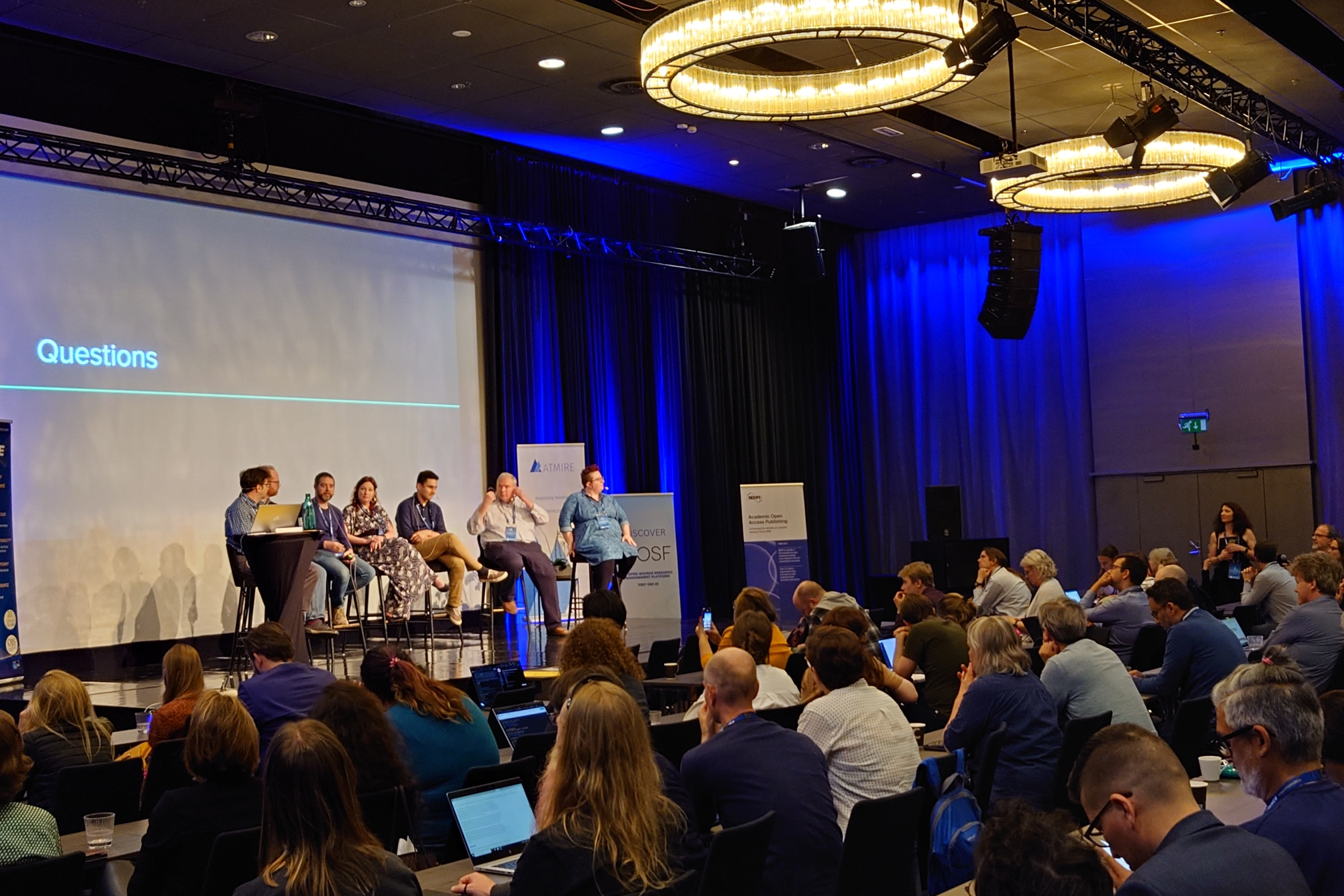Report on the 19th International Conference on Open Repositories (OR2024)
The depositar team attended the 19th International Conference on Open Repositories (OR2024) in Göteborg, Sweden, on June 3–6, 2024. Cheng-Jen Lee wrote a detailed report in Traditional Chinese. Below is a report from Tyng-Ruey Chuang in English.
The 19th International Conference on Open Repositories (OR2024) was held in Göteborg, Sweden, on June 3–6, 2024. Eleven workshops took place on June 3. The main conference was held from June 4th to June 6th and it included keynotes, presentations, panels, DevTrack sessions, 24x7 (7-minute lightning talks with each comprising no more than 24 slides) as well as a repository showdown and a poster session. The conference, hosted by the Chamlers University of Technology, was very well organized. The conference venue was the Clarion Hotel Post in central Göteborg. In total, 425 people from 45 countries attended the conference.
The OR2024 full program is available in ConfTool. Slides from the contributors can be found in the Open Repositories Community in Zenodo. In the following, we highlight some of the sessions we attended. Due to limited space, this report can only be considered selective and subjective.
In the Repositories Implementations session, researchers from Stanford University, Harvard University, and a team in the Netherlands (Leiden University, DANS, CNR-ISTI/OpenAIRE, and Vrije Universiteit Amsterdam) shared their experience in the planning and migration of existing digital repositories to modern data infrastructures in order to meet new requirements and/or to accommodate unexpected changes. All three presentations offered valuable advice. In the Repository Rodeo panel, representatives from several repository software and services (including Dataverse, DSpace, EPrints, Fedora, InvenioRDM, Islandora, and Samvera) all engaged with the audience with the directions of their respective technical and community developments.
Cheng-Jen Lee, the tech lead of the depositar, the data repository we have been developing in Academia Sinica, gave a presentation on Bringing Computation and Reproducibility to a Data Repository Using Binder at the Developer Track Session 2. In the presentation, he detailed how to extend BinderHub (a Kubernetes-based package powering the Binder service) to CKAN (software for managing and publishing datasets, and from which the depositar is derived) so users can easily create and share executable computing environments from datasets in the repository. In the Data Repositories and Lessons Learned session, depositar project lead Tyng-Ruey Chuang gave a presentation on Building An Open Repository for FAIR Data: Experience Sharing on Technologies, Communities, and Policies. He talked about the depositar team’s experience in community outreach and policy dialogue, in addition to the technical development of the open source data repository itself. The other presentations in the session were from Princeton University, KTH Royal Institute of Technology, and a consortium of research libraries in Canada. We feel the presenters all stress the importance of careful planning and long-term commitment of research institutions for the repositories they operate.
In the 24x7: Technical Solutions session, we would like to highlight two enjoyable presentations from the Czech Republic. Hana Vyčítalová, Petra Černohlávková, and David Gerner from the National Library of Technology shared their experience in moving from Invenio 1 to DSpace 7. Their presentation is stunning. Martin Lhotak, Filip Kersch, and Petr Zabicka (Library of the Czech Academy of Sciences and Moravian Library in Brno) presented Orbis Pictus: a project to open up the graphic content of digital libraries to the public, in particular about developing a tool to identify persons by their images in digitized books. The Trends and the Future of Open session is an overview of the research data landscape in Europe (but the observations are applicable elsewhere in the world). We recommend the readers to look into the presentation from Richard David Jones (Cottage Labs) where he reflected on his involvement in Open Access for the last 25 years. He provided insightful perspective on the current and future roles of repositories in improving global publishing equity.
We wish to note we finally met John Kunze after corresponding with him for several years. He and Donny Winston organized a workshop on Getting Running with ARK Persistent Identifiers. Using Archival Resource Key (ARK), the depositar team has developed a CKAN extension for assigning persistent identifiers (PIDs) to datasets. It is joyful to be able to meet, in person, the people who have helped us so much.
The 20th International Conference on Open Repositories (OR2025) will take place on June 15–18, 2025, in Chicago, Illinois, USA. The theme for the OR2025 conference is Twenty Years of Progress, a Future of Possibilities. The Call for Proposals is now open with a submission deadline of December 18, 2024.
Our travels to attend the conference have been supported by the Institute of Information Science, Academia Sinica, and by the National Science and Technology Council of Taiwan.
